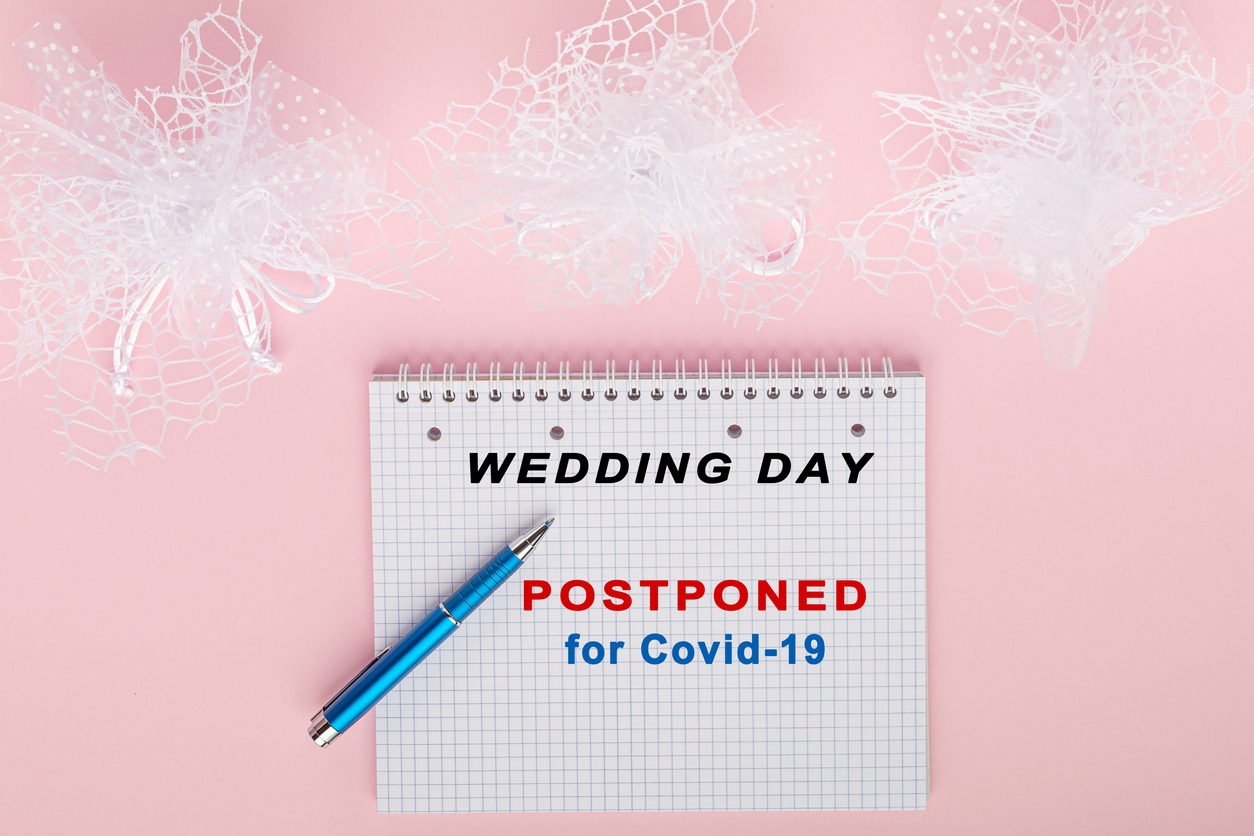My husband and I moved from New York City to Florida. Almost every summer we traveled back to New York for wedding season and this summer was no different for us. Just as the wedding season is getting into full swing, so are event cancellations due to COVID-19 pandemic. Last weekend alone, I received several calls from friends and family cancelling their weddings and baby showers until the COVID-19 outbreak has subsided. The novel coronavirus has caused major events around the world to be cancelled or postponed, further exacerbating the economic hardship.
While suits are currently being filed across the country to enforce business interruption coverage due to COVID-19, many venues, vendors, and event organizers may prevent serious financial harm in case of event cancellation under event cancellation policies. Event cancellation insurance protects against economic losses arising out of the cancellation or postponement of events resulting from circumstances beyond a policyholder’s control.
There are several types of event cancellation polices that may cover a wide variety of perils such as adverse weather, non-appearance of key performers, communicable disease or unexpected service interruptions. Whether the event that was cancelled due to COVID-19 is covered under your event cancellation policy depends on its specific terms at the time of loss. Some policies provide broader coverage, with few or no applicable exclusions. Other policies, like an “all-cause” policy, that do not necessarily address event interruptions caused by communicable disease could potentially provide coverage for event cancellations due to an outbreak of infectious diseases such as COVID-19. Policies that provide in pertinent part may also offer coverage:
[C]ancellation must be due directly to a… communicable disease… Communicable disease is defined as ‘ an illness, sickness, condition or interruption or disorder of bodily functions, systems or organs that is transmissible by an infection or a contagion directly or indirectly through human contact, or contact with human fluids, waste, or similar agents, such as, but not limited to Meningitis, Measles or Legionnaire’s Disease.’
Faced with an unprecedented number of claims, insurance carriers may require strict compliance with policy terms to minimize their own losses. They may disavow or limit coverage for various reasons, including, failure to satisfy certain conditions after the loss, application of policy exclusions, and whether an event was cancelled due to a covered cause of loss.
Depending on the jurisdiction, event cancellation policies often require a lawsuit against the insurance carrier to be filed within 12 or 24 months from the date the event cancellation, interruption or postponement. Be aware of notice and proof of loss requirements. Some policies require “timely notice” of a potential cancellation, while others require notice of loss “as soon as possible” or “as soon as practicable” after the loss.
Policyholders should carefully examine the terms and conditions of the policy to comply with all duties after the loss that it places on them. Our insurance coverage lawyers can assist with a review of your policy and claim. For more information contact Merlin Law Group.




